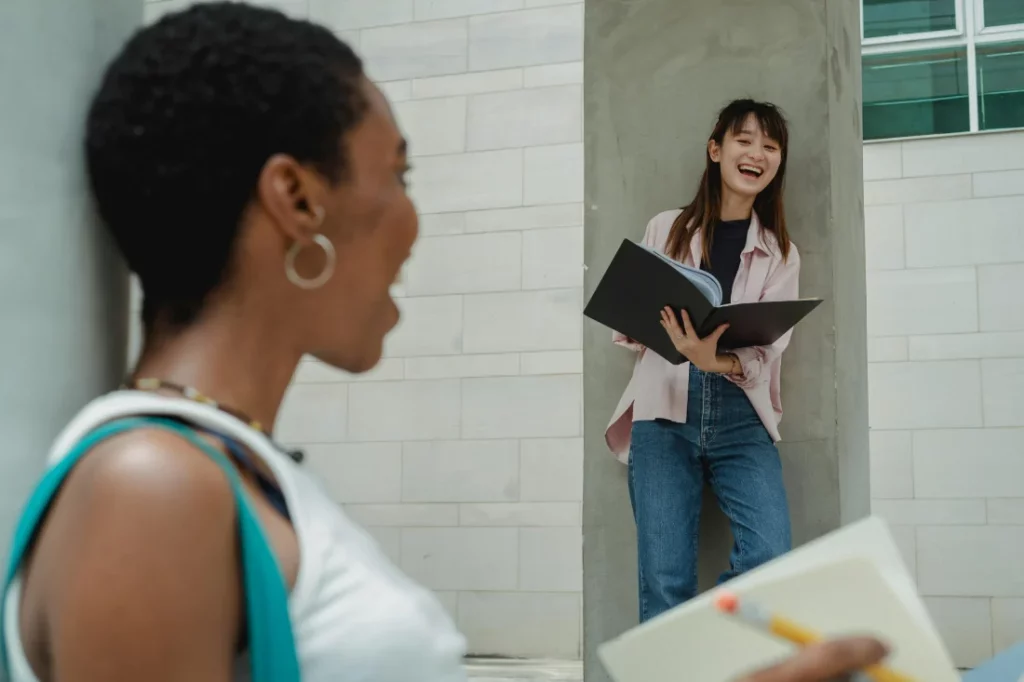
In an increasingly connected world, education cannot be limited to academic knowledge. It must also be founded on building open minds that can understand and communicate with others. Intercultural education is not just for children from immigrant families. It is a valuable tool for communication, sharing and respecting differences for all children. This is why École Galilée, a bilingual school in the Paris region, provides clear information on the basis of this approach, its role in schooling today and the conditions necessary for making it a reality.
What Is Intercultural Education? An Educational Approach Focused on Living Together
Pedagogy Based on Mutual Dialogue
Far more than simply juxtaposing cultures, intercultural education is based on exchange and mutual understanding. It invites each child to recognise the wealth of cultural differences while gaining perspective on their own norms. It’s not just about tolerance – it’s about entering into a real dialogue based on reciprocity and respect. The teacher plays a central role, facilitating interactions, giving value to diverse experiences and deconstructing stereotypes. This approach helps develop empathy, critical thinking and the ability to move through a pluralistic world.
A Transverse Approach at School
Intercultural education cannot be confined to specific projects: it must be integrated into the entire school environment. Course content, pedagogical techniques, relationships between students and overall school organisation are all part of it. Intercultural education is thus an interdisciplinary lens through which culturally-implicit information can be questioned each day. This requires paying close attention to each student’s development and needs, as well as including languages, cultural references and practices from their environment in the educational approach. This approach requires the school to go beyond multicultural decor. It must be part of a coherent curriculum founded on open-mindedness, recognition and shared values.
An Educational Response to the Modern World
Preparing Children to Live in a Pluralistic World
Between globalisation, human mobility and social changes, children live in an environment where diversity is everywhere. Schools cannot ignore this reality. They must give children a way to understand the complexity of the world and interact with it in a constructive way. Intercultural education allows children to develop essential skills such as empathy, cooperation, critical thinking and adaptability. These skills are essential for living and working together today. Preparing children to understand diversity means giving them the ability to coexist in a world where differences are no longer the exception, but the rule.
An Inclusive Approach for All Students
Intercultural education is too often seen as a filling a need for immigrant children. But in reality, it concerns all children. Each student, no matter where they’re from, lives in a pluralistic society, and must be able to decode a variety of cultural references. Thus, this approach is for all, validating individual experiences and considering them as true educational resources. It also helps us build a more just school environment, where each child feels seen and better prepared to meet the challenges of the modern world.
From Theory to Practice: Conditions for Successful Intercultural Education
Adults’ Roles in Building an Intercultural Environment
Adults at the school must be actively engaged in order to make intercultural education a success. Teachers, aides, administration, and external contractors all share the responsibility of creating an environment that encourages dialogue and mutual understanding. This requires critical thinking, the ability to question your own cultural bias and continuing education on diversity. By encouraging listening, mediation and critical analysis, adults create a calm educational environment, where each child’s uniqueness is valued. Their attitude is a key factor in making diversity a resource instead of a source of tension.
Specific and Coherent Educational Approaches
Intercultural education also requires specific approaches that are adapted to student experiences. It can include collaborative projects, activities on family languages, critical reading of school books or working with external partners. What matters is the coherence of the approach: pedagogical choices must reflect openness and inclusion, and not exoticism or marginalisation. This also requires family participation and a vision shared between teachers, administration and the entire educational community. This is the only way to make intercultural education a sustainable practice, and just a one-time bonus but a true guiding principle for the curriculum.
Intercultural Education in Action at École Galilée
A Bilingual School Where We Live Diversity Every Day
École Galilée, an international school in Paris, makes intercultural education a reality. We have students from a variety of backgrounds – children from French families, expats and recent arrivals in France – and make this diversity a tool for teaching, not just a background fact. French-English bilingualism, integrated starting at our bilingual preschool in Paris, opens children to other ways of thinking and being and facilitates learning. This daily multilingual and multicultural environment allows children to grow up in a world where diversity is the norm, respected and valued. From preschool to our bilingual middle school in Paris, cultural diversity doesn’t mean treating people differently, but rather paying close attention to individual development and the shared value of building a rigorous communal life.
Education Focused on the Student and Founded on an Intercultural Setting
The teaching team at École Galilée uses a kind and rigorous approach that is adapted to the specific needs of each child. Small class sizes, individual support, adapting to learning cycles: we bring it all together to create a setting that facilitates growth and understanding others. We work in collaboration with child specialists (psychologists, neuropsychologists), monitoring all aspects of the child’s development: cognitive, emotional and cultural. Here, intercultural is not a buzzword. It is a real part of school life.Intercultural education is not a choice, but an educational requirement. École Galilée demonstrates that it is possible to bring together open-mindedness, rigor and kindness, educating children to be enlightened thinkners that can live in a pluralistic world.

